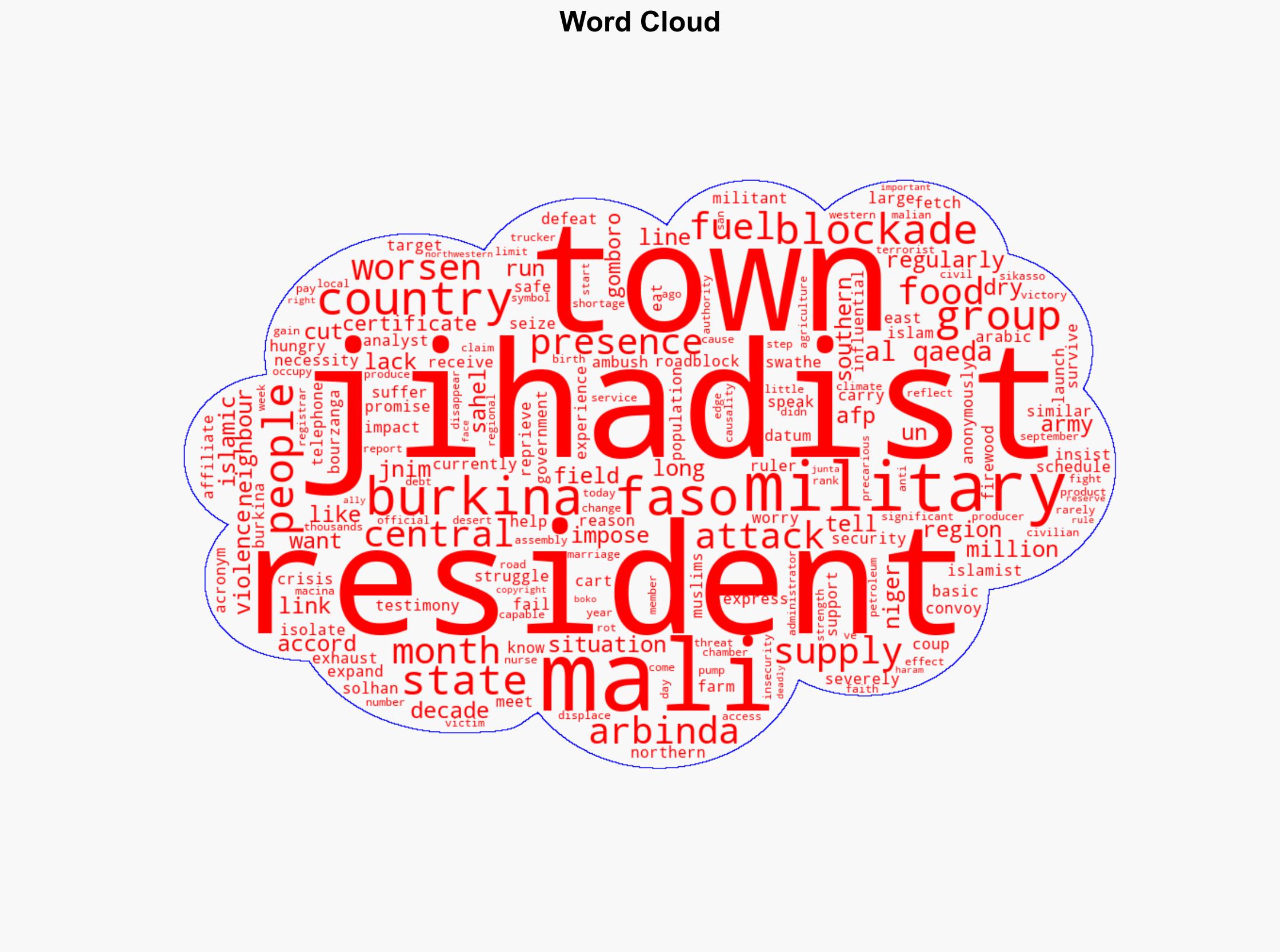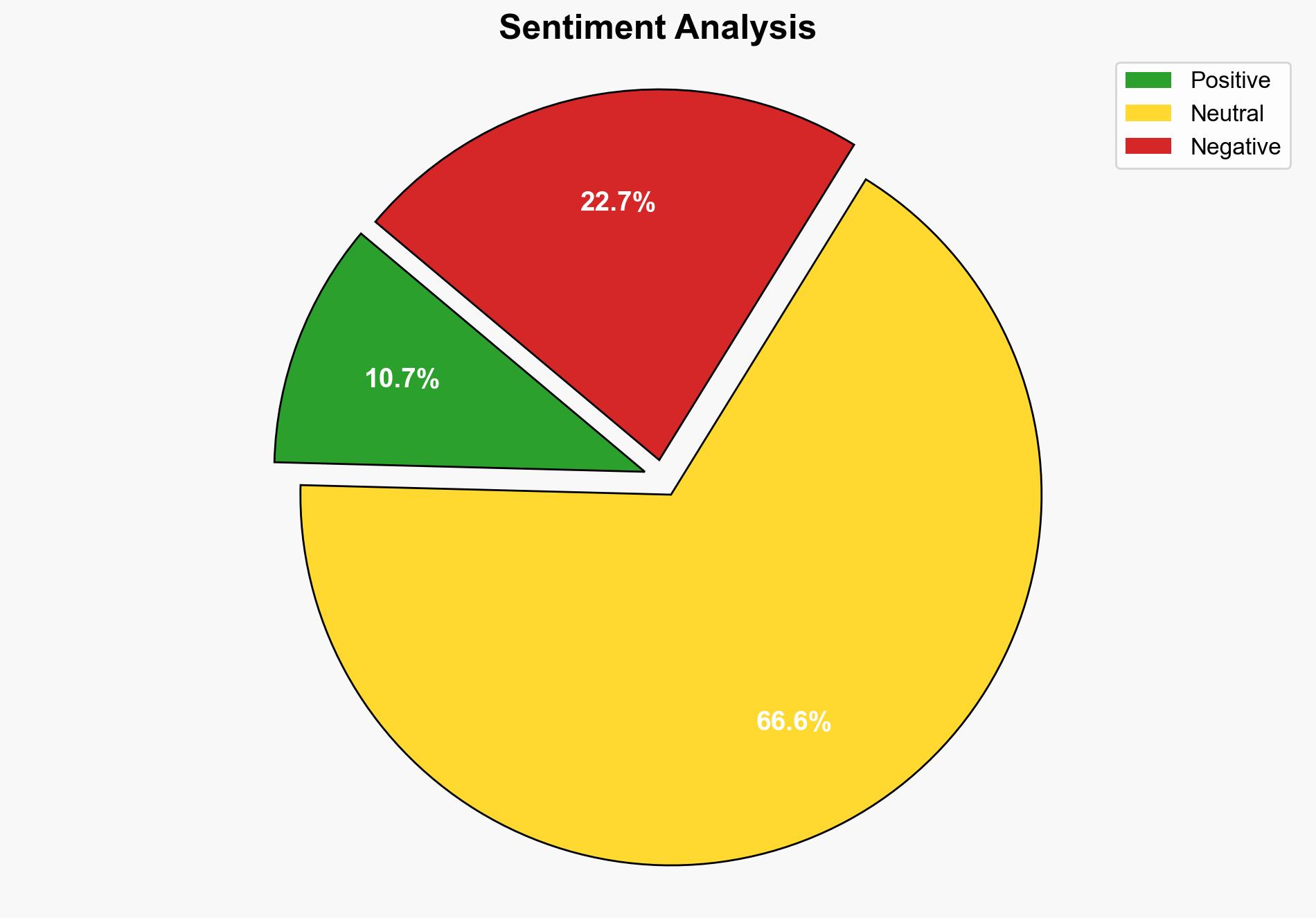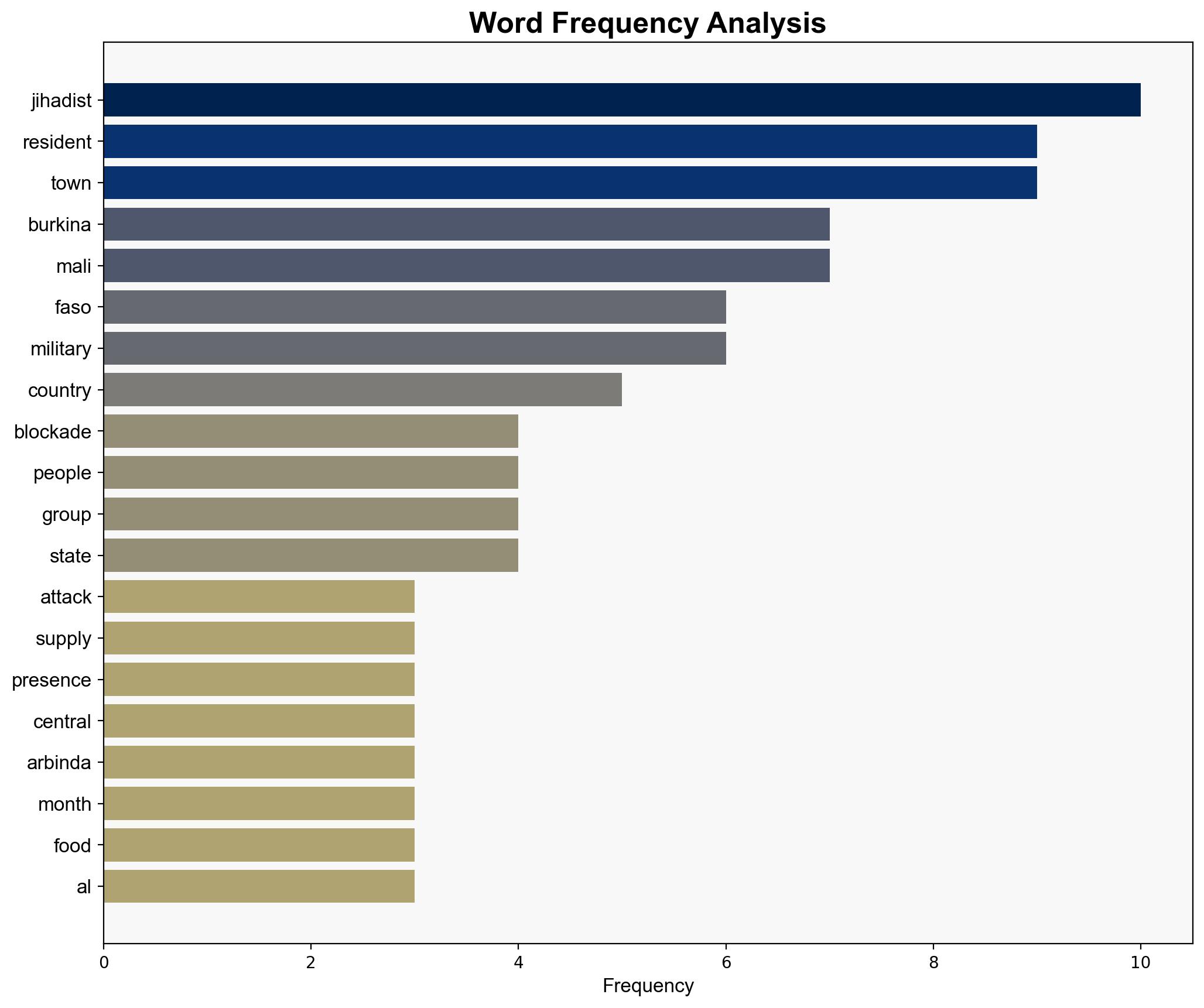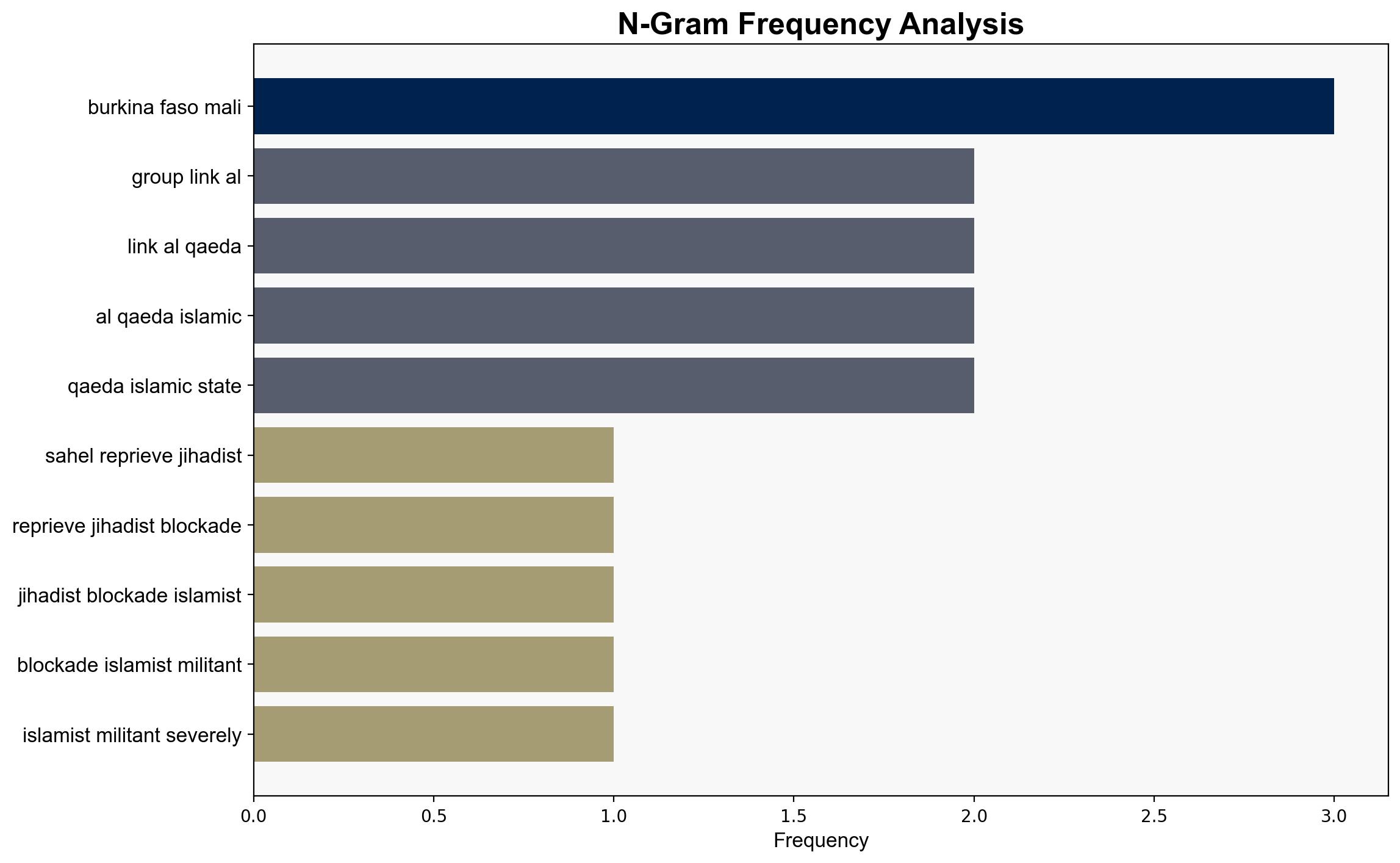In The Sahel No Reprieve Under Jihadist Blockade – International Business Times
Published on: 2025-10-20
Intelligence Report: In The Sahel No Reprieve Under Jihadist Blockade – International Business Times
1. BLUF (Bottom Line Up Front)
The strategic judgment indicates a high confidence level that jihadist groups, particularly those linked to Al-Qaeda and the Islamic State, are effectively using blockades to exert control over key regions in the Sahel, particularly in Burkina Faso and Mali. The most supported hypothesis is that these blockades are part of a broader strategy to destabilize military governments and expand jihadist influence. Recommended action includes enhancing regional military cooperation and increasing humanitarian aid to affected areas to alleviate civilian suffering and counter jihadist narratives.
2. Competing Hypotheses
1. **Hypothesis A**: Jihadist groups are using blockades as a strategic tool to weaken military governments and expand territorial control. This hypothesis is supported by the systematic targeting of supply lines and the imposition of blockades, as well as the historical context of jihadist expansion in the region.
2. **Hypothesis B**: The blockades are primarily a tactic to create humanitarian crises, thereby undermining public confidence in military governments and increasing recruitment potential among disaffected populations. This is supported by reports of severe shortages and civilian suffering, which could foster resentment against the authorities.
3. Key Assumptions and Red Flags
– **Assumptions**: Both hypotheses assume that jihadist groups have sufficient resources and organizational capacity to sustain prolonged blockades. It is also assumed that military governments lack the capability to effectively counter these tactics.
– **Red Flags**: The reliability of resident testimonies, given the potential for coercion or misinformation. There is also a lack of detailed casualty reports, which could indicate underreporting by military authorities.
– **Blind Spots**: Limited information on the internal dynamics of jihadist groups and their long-term strategic objectives.
4. Implications and Strategic Risks
The ongoing blockades could lead to further destabilization of the region, exacerbating existing humanitarian crises and potentially triggering mass displacement. The economic impact of disrupted supply lines could weaken local economies, making them more susceptible to jihadist influence. There is also a risk of escalating violence if military governments intensify their counter-terrorism efforts without adequate support.
5. Recommendations and Outlook
- Enhance intelligence-sharing and military cooperation among regional governments to better coordinate responses to jihadist activities.
- Increase humanitarian aid to affected areas to mitigate the impact of blockades and counter jihadist narratives.
- Scenario-based projections:
- **Best Case**: Successful regional cooperation leads to the lifting of blockades and stabilization of affected areas.
- **Worst Case**: Jihadist groups expand their control, leading to further destabilization and potential state collapse.
- **Most Likely**: Continued stalemate with intermittent successes and failures on both sides.
6. Key Individuals and Entities
– JNIM (Jama’at Nasr al-Islam wal Muslimin), an Al-Qaeda affiliate, is a significant actor in the region.
– Local military leaders in Burkina Faso and Mali, whose identities are not specified in the report, play crucial roles in the ongoing conflict.
7. Thematic Tags
national security threats, counter-terrorism, regional focus, humanitarian crisis, geopolitical instability





